
Thanks to good social insurance policies, Swedish people can live comfortably in their old age.
In 1913, Sweden's universal pension policy began to be implemented. At that time, the proportion of Swedish farmers was large while the pension system was only for workers. The government implemented the universal pension system to help farmers receive pensions, ensuring a minimum standard of living in society, most people when they reach the age of 65 will receive pensions.
In 1935, Sweden changed its policy to provide pensions to all citizens, including the richest. In 1948, everyone received the same amount. In 1999, Sweden switched to calculating pensions based on lifetime earnings (instead of the last 15 years) and allowed flexible retirement ages. People worked longer, and their pensions increased, and those who retired earlier, their pensions decreased, significantly reducing the abuse of pension funds.
The Swedish government also had to increase the retirement age for its people, not imposing a fixed retirement age, only stipulating that the earliest age to withdraw pensions is 61 and the latest age is 67. Statistical results show that after the reform, the average retirement age increased significantly because workers realized that retiring early is a disadvantage when receiving pensions. In general, the Swedish pension reform is considered successful in many aspects, both solving the aging problem and ensuring greater fairness. Policies such as the universal pension, when issued, will create changes and have a great impact on society, so a suitable roadmap is needed. It took Sweden 60-70 years to shape the current policy.
In our country today, the number of people of working age who do not participate in social insurance accounts for a very high proportion. According to Mr. Nguyen Khac Toan, Director of the Institute for Training, Fostering Cadres and Scientific Research (Central Committee of the Vietnam Fatherland Front), currently the whole country has about 19 million workers participating in social insurance, equal to 33% of the total number of workers; of which, the group of workers who are civil servants, public employees, and employees signing labor contracts at administrative agencies and public service units reaches 2.8 million people; the group of workers and employees in enterprises reaches 12 million people; the group of freelance workers paying voluntary social insurance reaches 1.7 million people; the group of elderly people with pensions is 2.5 million people. Thus, the number of people of working age who have not participated in social insurance accounts for a large number (67%).
To encourage people to participate in voluntary social insurance, the Social Insurance Law 2025 clearly stipulates the participation mechanism. Accordingly, the State supports 50% for poor households, 40% for near-poor households, and 20% for other subjects on the monthly contribution. However, the number of people participating in voluntary insurance is still small (1.7 million people).
Vietnam is in a rapid aging phase, and is expected to enter the period of an aging population by 2038. According to Lam Van Doan, Vice Chairman of the National Assembly 's Committee for Culture and Social Affairs, our country needs to implement early retirement reform. Vietnam has gradually increased the retirement age according to a reasonable roadmap with a multi-level retirement model. The State needs to encourage labor, expand the contributory force; at the same time, research appropriate retirement policies for healthy elderly people to continue working after retirement age or work part-time to receive higher pensions, not wasting social resources.
Currently, the poverty rate among the elderly in Vietnam without pensions is quite high. It is necessary to soon have a roadmap to gradually expand social subsidies for the elderly in line with the economic growth rate and the state budget capacity, while still increasing investment for children (fighting malnutrition, eliminating the gap in access to education between rural-urban-remote areas). A balanced system will create solidarity between generations and social consensus. Population aging is also an opportunity to reform the social security system more comprehensively, inclusively and sustainably.
According to Decree 76/2024/ND-CP dated June 25, 2024 of the Government on amending and supplementing a number of articles of Decree No. 20/2021/ND-CP dated March 15, 2021 of the Government regulating social assistance policies for social protection beneficiaries, the social assistance standard has been adjusted to increase from VND 360,000/person/month to VND 500,000/person/month. This policy aims to partially support the living expenses of disadvantaged people (people over 80 years old without pension, people with severe disabilities, poor households with children with special difficulties...). However, the new standard is equal to 33.33% of the income poverty line in rural areas, equal to 25% of the poverty line in urban areas and the scope and level of subsidies are still very limited, only targeting a number of disadvantaged groups in society.
Vice President of the Vietnam Women's Union Nguyen Thi Thu Hien said that implementing a universal pension policy will help reduce the burden of caring for the elderly; create conditions for people of working age to participate in the labor market better; create more wealth for society and help the economy develop.
According to Ms. Hoang Thi Le, Director of the Department of International Cooperation, Ministry of Ethnic Minorities and Religions, to effectively implement the universal pension policy, it is necessary to ensure good financial resources. Those resources rely on the social insurance fund formed from contributions of employees and employers; budget support from increased revenue sources of personal income tax, corporate income tax, VAT, especially tax collection for small-scale business households that have not officially registered...
Moving towards a universal pension policy will effectively solve social security issues, providing a safe support for workers when they retire. However, for this policy to soon become a reality, it requires the decisive involvement of functional agencies and the enthusiastic participation of workers and the whole society.
According to Nhan Dan Newspaper
Source: https://baotuyenquang.com.vn/xa-hoi/202511/huong-den-chinh-sach-luong-huu-toan-dan-2421f2e/








![[Photo] Closing of the 14th Conference of the 13th Party Central Committee](https://vphoto.vietnam.vn/thumb/1200x675/vietnam/resource/IMAGE/2025/11/06/1762404919012_a1-bnd-5975-5183-jpg.webp)

















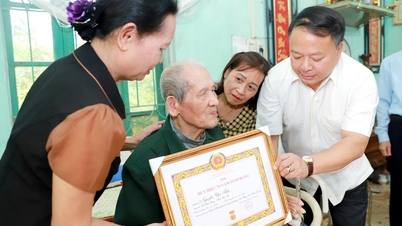










































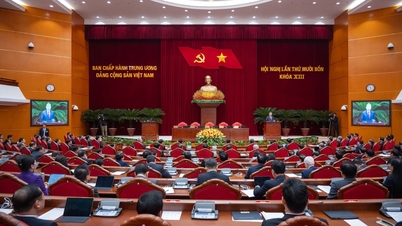





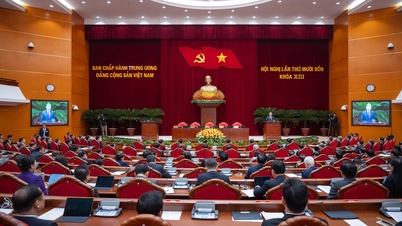

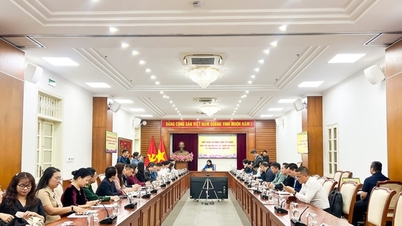




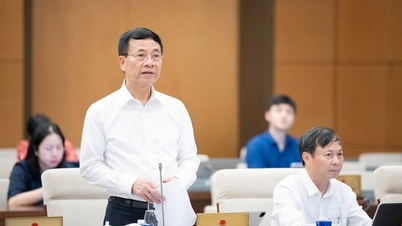
























Comment (0)